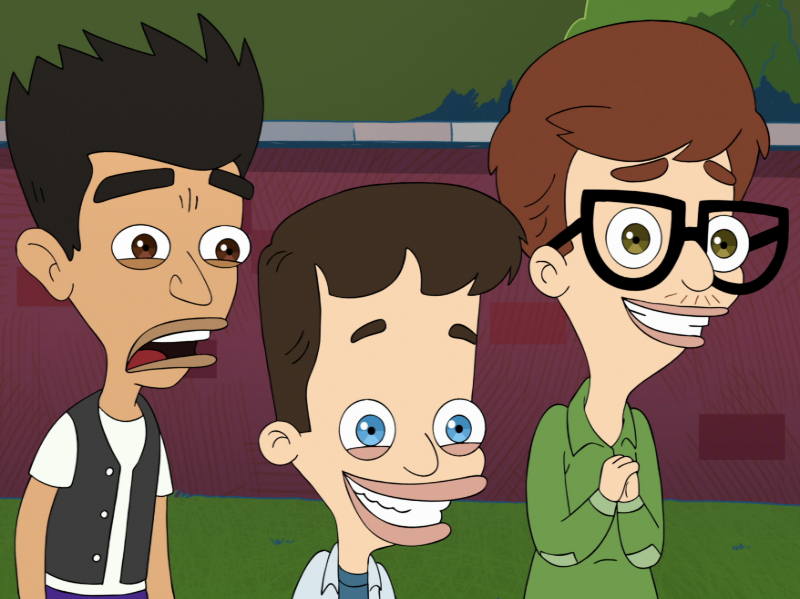Why is it funny to watch Jewish men try and have sex? What makes overly intellectual, anxious, scrawny leading men such perfect setups for the eternal punchline of just being in bed with a woman?
Larry David spends an entire season of Curb Your Enthusiasm, granted permission by his wife to have sex with anyone he can, trying to convince women to actually do it with him. “Awkward Jewish guy trying to have sex with attractive women” is basically every character Woody Allen’s ever played.
Beyond the scrawny, balding, sex maniac trope, male Jewish comics either lean into the stereotype of bumbling, earthy, un-sexy fun guys (Adam Sandler, Seth Rogen) or those whose confidence helps them excel beyond their average looks (Jerry Seinfeld, Garry Shandling). In any situation, they get the girl, and it’s a funny, charming, universalizing lesson: maybe we don’t need to be supermodels after all. Maybe we can find people who appreciate us for who we are — or at least for our jokes.
These Jewish comics invariably tell stories about their awkward teen years, but we know they’re exaggerating. We might imagine 13-year-old Woody Allen as a pale loser, but in fact he was a popular, magnetic kid who shone on the baseball field.
READ: A TALE OF TWO KINDERGARTEN TEACHERS
If you want real insight into the world of awkward, young, funny Jews, your best bet is to watch Big Mouth.
The Netflix original cartoon series, which debuted its second season this fall, follows a handful of kids as they confront puberty — literally, in the form of their hormone monsters, Maury and Connie, who invisibly follow them around and give them generally terrible advice. Connie pushes her pubescent disciple to steal, lie and lash out at her mother (“She ain’t your momma no more,” she cries. “From now on, her name is Shannon!”), while Maury just wants to constantly masturbate.
This is a crude simplification of a beyond-crude show, but here’s the thing: Big Mouth is spot-on. Pubescent kids do dumb things and this show, at its best, examines the psychology and logic behind those terrible decisions better than any softly lit young-adult drama. For all its unrealism, it’s pretty real.
That’s not to say Big Mouth is always great. It often veers into weird teenage fantasies of talking semen-filled pillows and porn-packed jungles and way too many vomit gags: in short, the kind of show that appeals to exactly the kind of kids who star in it. It’s a handy hook, since most episodes contain refreshingly useful lessons about normalizing sexuality, but it also ensures some kind of humour for everyone to both love and loathe.
I don’t think it’s a coincidence that of Big Mouth’s four creators, three are clearly Jewish (Nick Kroll, Andrew Goldberg and Mark Levin), and the one who may not be Jewish (Jennifer Flackett, whose name, I apologize, just isn’t obviously Semitic enough) is married to Levin anyway. Big Mouth never shies away from the overt Judaism of two of its main characters, Andrew Glouberman and Jessi Glaser: the first gets Richard Kind voicing his buffoon dad while the latter enjoys a full episode devoted to her disastrous bat mitzvah.
Though Jessi and Connie the monster are, I believe, the best characters in the show, it’s the awkward young dudes trying to figure out women who take centre stage. You can easily imagine these boys growing up and becoming nervous comics who make jokes, instead of playing sports, to attract girls. (Likewise, Jessi is a clear budding Sarah Silverman or Ilana Glazer, steered by impressive sexual confidence hiding deeper neuroses.)
Big Mouth is clever, but it’s truly unique as a link between real-world young adulthood and the kind of nebbish adult Jewish comic with whom we’ve become so familiar — a glimpse into an eternal kind of Jewish sexual anxiety that strikes at puberty and never lets go.
